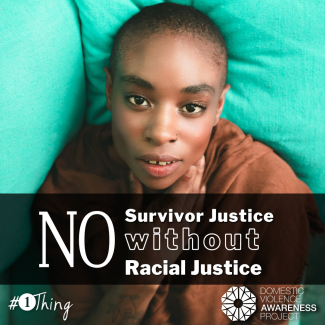"We do this work from the heart because we live it … We laugh and cry about it. We are in a fight to save ourselves, our mothers, our aunts, our daughters, our sisters. Equity for Black women is equity for everyone."
- Jada Shirriel, CEO of Healthy Start Pittsburgh
In our work to prevent gender-based violence, we share a vision. This vision is a country and world where individuals, families, and communities thrive. We can boldly achieve that vision if we center those most impacted in our violence prevention work. Health equity is an important pathway to that end. It ensures that everyone has the opportunity for optimal health, wellness, and well-being.
Racism is a key factor driving health inequity in the United States. The Centers for Disease Control and Prevention has recognized its impact on the health of our entire nation. They name racism as a serious threat to the public’s health. We must acknowledge the overwhelming burden on women of color — especially Black women — who fight for not only their health, but their very right to it.
As we center Black women in our health equity efforts, we must remember that this work is not only about addressing past and present trauma and oppression. It is also about acknowledging and celebrating the fullness of Black womanhood and humanity. It includes honoring Black joy, creativity, resilience, and liberation.
This issue of the PreventIPV newsletter features resources and upcoming events that highlight the importance of centering the lived experiences, voices, and leadership of Black women in our work. Doing this will create healthy environments for people to live and be themselves while learning, working, loving, worshiping, playing, and gracefully aging.














